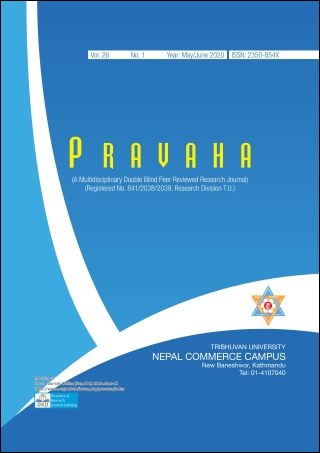Outsourcing Practices: Benefits and Pitfalls as Perceived by Professionals and Managers
DOI:
https://doi.org/10.3126/pravaha.v26i1.41868Keywords:
Outsourcing, Benefits, Pitfalls, Business activities, Industries, Professionals, ManagersAbstract
This study aims to examine the promising benefits and pitfalls of outsourcing practices in the Nepalese industries. This paper follows a descriptive research design. By using a selective sampling technique, a total of 555 questionnaires were distributed to the professionals and managers of 37 companies listed in the Nepal Stock Exchange (NEPSE) in different types of industries of Nepal. Based on the empirical results it is found that concentration on core activities and competencies, improve responsiveness to customers, increased flexibility, quality improvements, cost-saving, and accountability are the top-ranked benefits of outsourcing practices in Nepalese industries. Change problems, contract costs, maintaining the relationship, lost opportunity, and loss of distinctive competencies are some of the notified pitfalls of outsourcing practices. Also, the companies may suffer from the lost opportunity because selling a strategic resource may end up costing them in the long-run. Due to outsourcing practices, the companies may suffer from losing public image, quality of service, outsourcer profit, loss of flexibility, and losing control as well. Therefore, the companies should be serious regarding outsourcing decision-making. To get more benefits from these practices companies need to maintain a smooth relationship with suppliers and vendors. They need to select the partners who match to expertise and business scale. They also need to consider the costs and risks associated with such practices. They need to focus on effective communications in terms of cost, time differences, and cultural difficulties and protect intellectual property as well. At the top of all the companies also need to consider customers' attitudes, expectations, and needs.
Downloads
Downloads
Published
How to Cite
Issue
Section
License
© Nepal Commerce Campus, TU
Authors are required to transfer their copyright to the Nepal Commerce Campus, TU.




